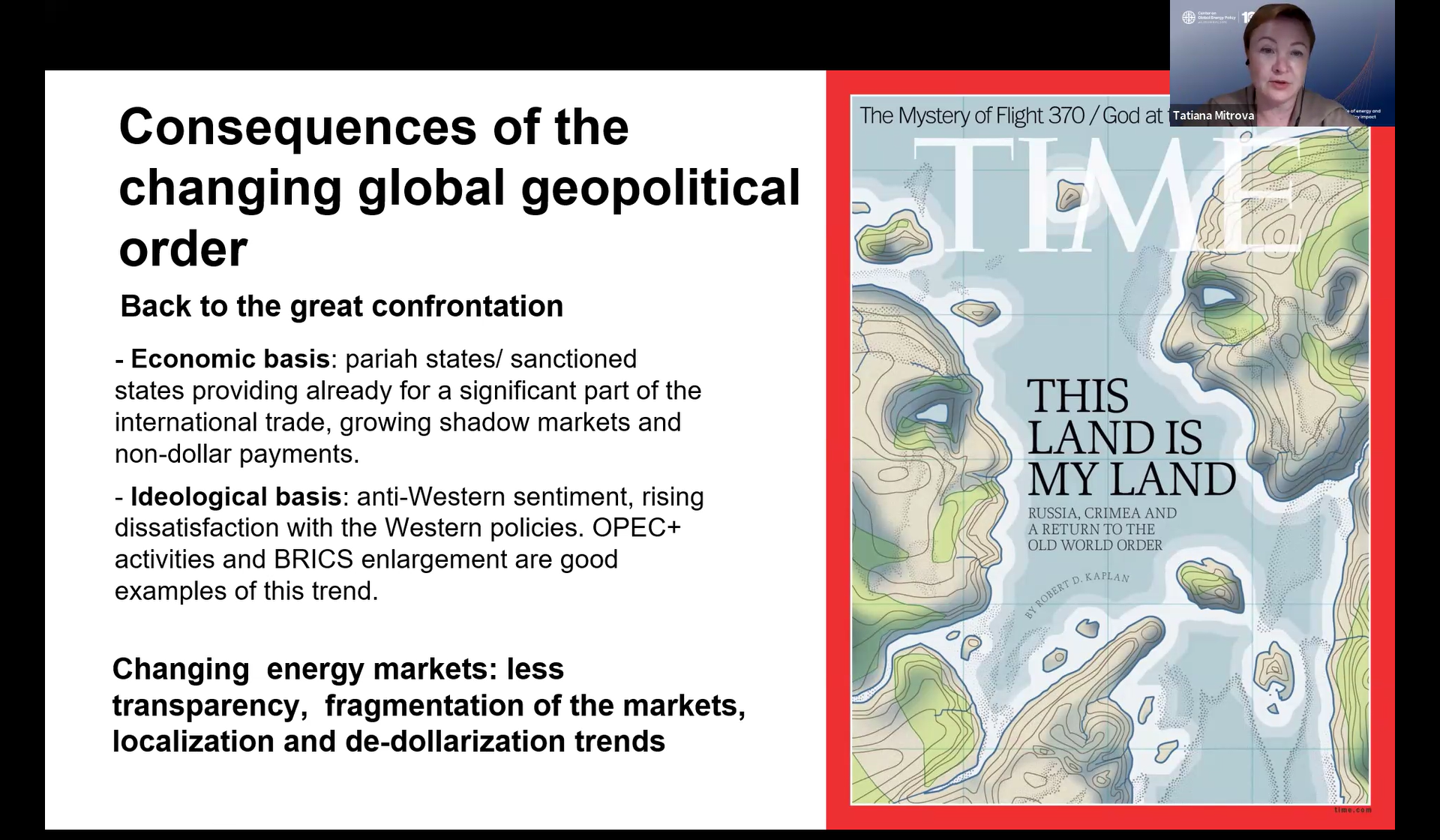Monday, January 08, 2024
As part of our ‘‘WEC Mondays-Guest Speaker Series’’ we hosted Dr. Tatiana Mitrova, Research Fellow at the Center on Global Energy Policy.
In Dr. Mitrova’s presentation on ‘‘Transformation of the global geopolitical order, its implications for the energy security and international energy trade and markets’’, Dr. Mitrova highlighted:

- A new stage of geopolitical transformation is on the rise. Internationalized conflicts have increased nine-fold since 2004. Geopolitical tensions have evolved into proactive military conflicts that we now see in most parts of the world. Russia-Ukraine war is the largest military conflict in Eurasia in the last 80 years. Large scale military conflicts in the Middle East, civil wars in Afghanistan, Myanmar, Republic of Congo, and dozen other states clearly signaling a shift in conflict dynamics in an increasingly multipolar world.
- As a result, the energy sector is facing unprecedented setbacks. For the first time since World War 2, critical energy infrastructures are being targeted during military conflicts. The Nord Stream and Baltic Pipeline explosions are just a few examples of such incidents, and we can expect more critical energy sabotage in 2024.
- As military conflicts increasingly became part of our new reality, we need to redefine energy security in this new paradigm. Revised definition of energy security should not be limited to affordable price, reliability, and resilience of energy infrastructure, but it should prioritize cyber security and the physical safety of energy infrastructures considering the rising military conflicts in the world.
- The old enforcement mechanism is no longer effective. Despite ‘‘the strictest ever sanctions’’ imposed on Russia after the invasion, Russia was quite successful in terms of redirecting its energy exports to more ‘‘friendly’’ jurisdictions which minimized the damages of the sanctions. The Russian economy advanced 3% year-on-year in 2023 which was better than many European economies which reaffirms the ineffectiveness of the old enforcement mechanism in this new geopolitical paradigm.
- Consequently, the world energy market will become more fragmented and far less transparent due to this new geopolitical order. Sanctioned states will seek more shadow markets and non-dollar payments to retaliate which will ultimately result in more uncertainty in the global energy market. The exact price and the volume of the trade are classified in order to protect the sanctioned states from more sanctions. Once a relatively transparent and globalized energy market will become less transparent and more localized.
- The poorest countries of the global south will suffer the most from this less transparent, more volatile global energy market. Comparable to the cold war times, these countries become playing field to competing powers, unlike 1970s, today we have China – a major power who can potentially complicates the new power paradigm.
- The new geopolitical order also opened the gateway to the possibility of numerous energy transition pathways. Countries are developing their own transition pathways depending on their geographical advantages, economic background, and policy preferences.
- However, in a more untransparent, volatile, fragmented global energy market we will encounter more energy security related risks, especially in the absence of working global mechanisms to manage these risks.
